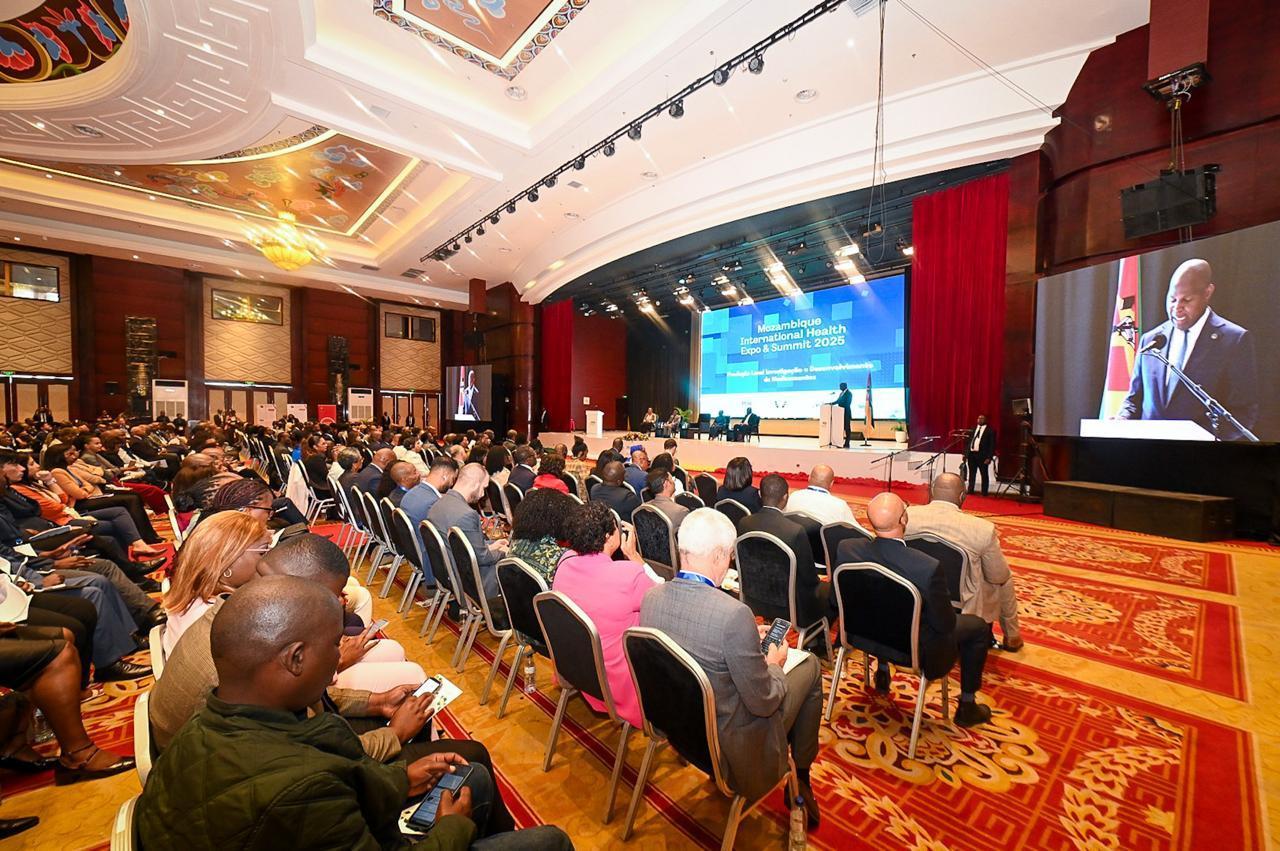Africa-Press – Mozambique. Mozambican President Daniel Chapo on Wednesday noted that, although Africa accounts for 25 per cent of the world’s disease burden, the continent “remains excessively dependent on the import of medicines”.
Speaking in Maputo at the opening of an international conference on Local Production, Research and Development of Medicines and Health Products, Chapo said that “about 90 per cent of all medicines and health products which Africa consumes are produced on other continents”.
Furthermore, only three per cent of the world’s health professionals are working in Africa.
The dependence on imported medicines puts African health systems “in a vulnerable situation, exposed to fluctuations on the international market, logistical delays, geopolitical crises and budgetary restrictions”, Chapo said. “This situation was very serious during the Covid-19 pandemic, when Africa had to wait a long time to receive vaccines through gestures of good will from some countries, after they had attended to their domestic needs”.
Furthermore, “the fragility of supply chains and regulatory systems, the limited resources to control the quality of pharmaceutical products, and poor border control have facilitated criminal practices which endanger the lives of African citizens”.
Chapo warned that “the theft of medicines, cross-border contraband and the proliferation of counterfeit medicines are a real threat to public health, to the integrity of our health systems, and to public trust”. He added that, according to the World Health Organisation (WHO), 42 per cent of the known incidents with false and counterfeit medicines, between 2013 and 2017, occurred in Africa.
The United Nations Office on Drugs and Crime (UNODC) has estimated that about 500,000 deaths a year in sub-Saharan Africa are caused by the use of counterfeit medicines. About 267,000 of these deaths are caused by counterfeit anti-malarial drugs and 169,000 by fake antibiotics.
Fake drugs, Chapo added, “bring disastrous consequences for public health, such as increased mortality rates from treatable diseases and the proliferation of anti-microbial resistance. They place an enormous burden on our African economies”.
Covid-19 had exposed the weaknesses of the global medical products supply system, and made clear the urgency of strengthening local capacities to produce pharmaceutical products. From this crisis, Chapo said, “Mozambique took a very clear lesson: no country should remain vulnerable to shortages of medicines, vaccines, or essential medical equipment. Hence, we are holding this conference”.
Chapo added that Mozambique’s National Industrialisation Programme (PRONAI) includes a health sector which “is intended to speed up the development of productive units, support the transfer of technology and guarantee compliance with international quality standards”.
Mozambique, he said, hoped to attain “health sovereignty, sustainable economic development and regional integration through the local production of medicines and essential inputs”.
This would involve “attracting investment, promoting public-private partnerships, strengthening the pharmaceutical industrial park and guaranteeing that national industry is an ally of public health in Mozambique”.
The government would also implement a system of “track and trace” that would make it possible to follow medicines and other health products from the point of production to the final patient. Chapo said this would boost the fight against theft of medicines, and against contraband and counterfeit products.
Tracking each consignment of medicines from the factory to the patients “will contribute to the rational use of medicines”, the President said, and would make savings along the whole medicine distribution chain, since the stocks available will be visible along their entire journey from factory to patient.
This system, Chapo said, will be implemented as from Wednesday, with all legitimate medicines bearing a tracking stamp.
Chapo regarded this as a “historic step guaranteeing that each medicine that reaches Mozambican citizens is safe, traceable and authentic”.
For More News And Analysis About Mozambique Follow Africa-Press






